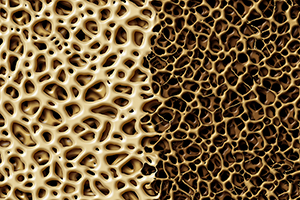



| By Dr. Ronald Hoffman
Cigarette smokers usually are familiar with the myriad reasons why they should stop smoking. However, conquering nicotine addiction remains a difficult, sometimes impossible, hurdle for many patients.
Nicotine is a highly addictive drug that produces positive reinforcing effects, including mild euphoria, increased energy and heightened arousal. It also has been shown to have antidepressant effects.
Tobacco use is responsible for the majority of avoidable deaths and illnesses in the United States. Cigarettes are a factor in approximately 17 percent of all deaths in the United States annually. This is more than the number of combined deaths from alcohol, illegal drug use, motor vehicle accidents, suicide and homicide. Tobacco smoking causes an estimated 33 percent of all cancer deaths, 25 percent of fatal heart attack, and 85 percent of deaths from chronic obstructive pulmonary disease and lung cancer.
Female smokers experience menopause earlier, have higher rates of osteoporosis and have higher rates of uterine cancer.
Smoking paralyses the cilia (hairs lining the nose and throat), reducing their capacity to move mucus and clear viruses such as the common cold.
Fear of potential withdrawal symptoms, such as increased anxiety, insomnia and weight gain, can prohibit patients from undertaking smoking cessation programs. However, with adequate nicotine replacement therapy (NRT), quitting can be a relatively easy task. NRT actually prevents weight gain.
Most patients are familiar with nicotine replacement in the form of transdermal patches and gum. We find at the Hoffman Center, however, that these two modes of delivery confer inadequate nicotine replacement. Additionally, they fail to address the oral fixation component of cigarette withdrawal.
We have had significantly more success with the Nicotrol inhaler. This device, which looks like a fake cigarette holder with an attachable cartridge, delivers a dose of nicotine into the lungs that seems to be potent enough to satisfy the cravings of patients who smoke even up to two packs a day. Patients also appreciate the fact that they can puff on the cartridge, and it’s easily accessible: They can pull one out in the office and not have to leave their desks to satisfy the nicotine craving. My experience is that the vast majority of patients who use this prescription quit smoking with very little effort.
We rarely have found it necessary to use additional pharmacological intervention, such as Bupropion SR (Zyban). This is a relatively safe antidepressant proven to help smoking cessation. We find that NRT via the Nicotrol inhaler provides ample support for the majority of patients undergoing smoking cessation. We always use certain types of nutritional support.
Supplements that treat anxiety and insomnia tend to work well with NRT. For example, sublingual Kava spray can be a highly effective sleep aid and anxiety reducing substance. (And, when appropriate, Zyban can help treat the masked depression that sometimes underlies nicotine use.)
Patients who are undergoing smoking cessation need higher doses of certain vitamins and supplements.
Vitamin C (smokers break down Vitamin C about twice as fast as non-smokers) 1,000mg. three times daily.
Vitamin A (aids in the healing of mucous membrane tissue) Maximum 10,000 IU daily.
CoQ-10 (cardio-protective antioxidant) 50 mg. twice daily.
Lipoic acid (anti-oxidant capable of penetrating deep into lung and heart tissues) 300 mg. twice daily.
Zinc (aids healing of mucous membranes) 30 mg. daily.
In addition to these supplements, the Salad and Salmon diet can be helpful in terms of breaking the cycle of hypoglycemia that underlies nicotine craving. Nicotine actually raises blood sugar, thereby combating hypoglycemia. Therefore, smokers choose nicotine instead of eating properly. This diet is an excellent adjunct to NRT for the prevention of subsequent weight gain after cessation.
Though we think of declining estrogen as the hallmark of menopause, it's actually common for…

Up to 12 percent of Americans have ulcers at some point in life. Peptic ulcers…
Gallbladder disease is a modern illness. An estimated 20 million Americans have gallbladder disease. The…

Lately, I’ve been sharing with Intelligent Medicine listeners that I’ve been augmenting my diet with…

Q: I am a 77-year-old woman. On recent bone density test, lumbar spine results range…

The 1973 sci-fi movie Soylent Green depicts a dystopian future in which over-population and environmental…

Leyla Weighs In: Exploring Yoga’s Therapeutic Role in Neurological Disorders

Our virtual voicemail is open 24/7, so there's no need to wait to submit your questions for Dr. Hoffman. Leave a message, and you may hear your question featured on the Intelligent Medicine radio program!